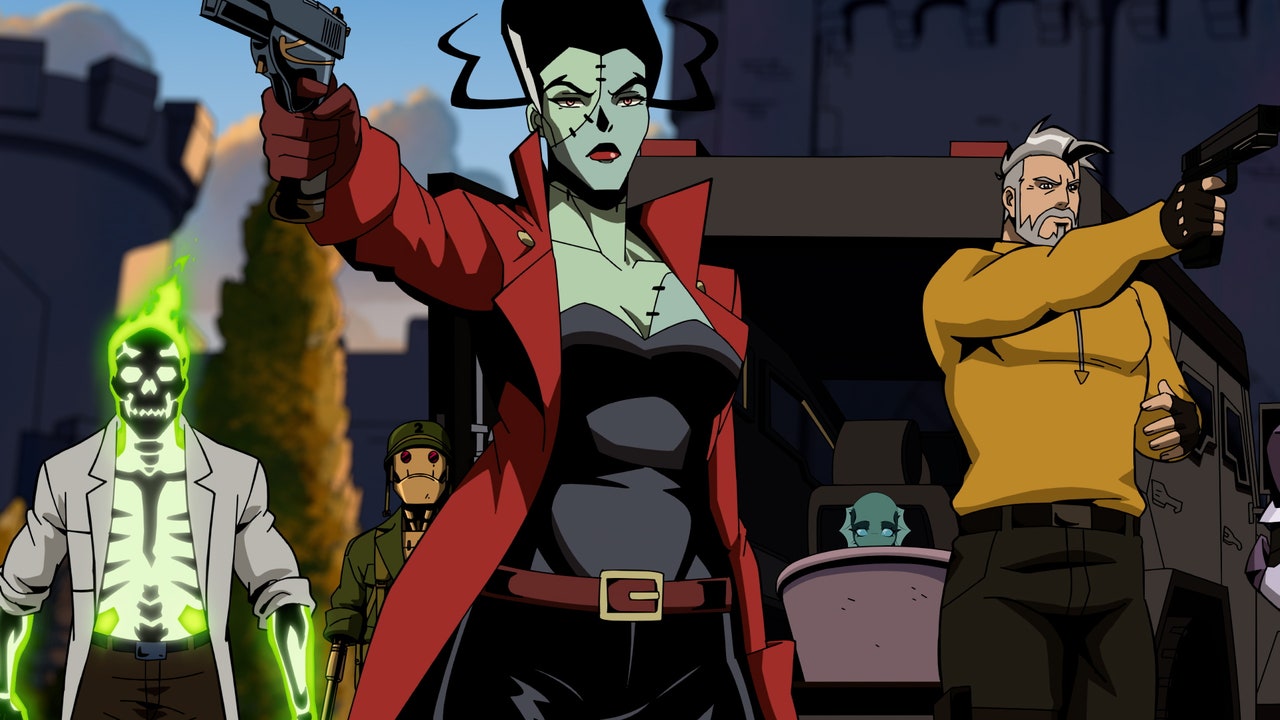This article contains spoilers for Creature Commandos.
Why Creature Commandos? When DC Studios co-CEO James Gunn announced the first slate of new DC Universe projects since his annointment as creative lead of the embattled DCU, the most curious of the revelations was how Gunn planned to kick off his tenureâwith a seven-episode animated TV series loosely based on an obscure team of Nazi-hunting monsters introduced in comics in the 1980s.
With Commandos finally loosed upon the worldâthe first two episodes premiered on December 5, and the third hits todayâwe have some answers as to why Gunn, who wrote all seven episodes, decided to start here. If this show is any indication, the way forward for the DCU looks pretty similar to whatâs behind it. Creature Commandos isnât exactly a palette-swapped version of The Suicide Squad, but itâs broadly similar to Gunnâs best-known DC work.
In the wake of the revelations at the end of season 1 of Gunnâs Peacemaker, Amanda Waller (a returning Viola Davis) has been slapped on the wrist by the U.S. government and ordered to stop sending humans on dangerous clandestine missions. But as she notes to team leader Rick Flag Sr. (Frank Grillo), the bureaucrats didnât say anything about monsters. Enter the titular commandos: Doctor Phosphorus (Alan Tudyk), GI Robot (Sean Gunn), Weasel (also Gunn), Nina Mazursky (Zoë Chao), and The Bride (Indira Varma)âas in âof Frankenstein.â Sound familiar?
Dispatched to a fictitious European country to protect Princess Ilana (Maria Bakalova) from Amazonian sorceress Circe (Anya Chalotra) and her army of neckbeard incels, Commandos economically locks its central premise into place, with each 25-ish minute episode focusing on the events at hand while filling in the details of each Commandosâ backstory. As is his calling card, Gunnâs quick to show that each of the creatures are more than the mere monsters everyone believes them to be, giving a hefty amount of emotional weight to the proceedings.
As Commandos digs in, strands of Gunnâs plan come together. There are loose references to the canon of the now-defunct DC Extended Universe, but those are unsurprisingly cherrypicked from Gunnâs work. Along with the nod toward the finale of Peacemaker (a show from the DCEU that will return next season as part of Gunnâs DCUâyes, itâs confusing) thereâs an acknowledgment that Rick Flag Jr died on Corto Maltese in The Suicide Squad, and that Weasel was one of the few survivors. The assorted flashbacks allow Gunn and directors Matt Peters and Sam Liu to make the retooled DC Universe feel like, well, a universe. The GI Robot flashback cuts back to Sgt. Rockârumored to get his own Daniel Craig-led movie from Luca Guadagninoâand Easy Company in the thick of World War II. Doctor Phosphorusâs status as a burgeoning crime lord is quelled in short order by a shadowy appearance from Batman. Themyscira is treated as legend, with believers and non-believers alike.
These are brief connections that donât draw attention to themselves in how they arrive. Sure, thereâs Batman, but it doesnât matter who or what his deal is at this particular moment. These moments tease and hint at a storied history and expansive world that exists just outside the confines of Commandosâ particular premise. Moreover, theyâre in service of the characters at hand, not Gulp Shittos to be Leo-pointed at. Batman showing up to sack Phosphorus proves how small the monster is in the confines of his own storyâand gives quite a motivational hook as to why he might be inclined to help Waller, Flag, and the rest of his teammates save the day.
Commandos posits a potent playbook for the start of the DCU. Build off of established narratives that work. Donât get too bogged down in the details. Put character first. These are simple elements, sure. But everything lies in the execution. And whatâs impressive about Commandos is how little it feels like a big, bold declaration. Itâs more subtle and complex than whatâs readily apparent on the surface. You know, like a typically great James Gunn project.

